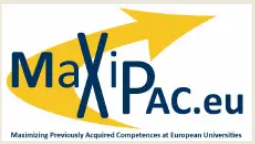General admission requirements for third countries students (including refugees and asylum seekers)
Following the first article of The Geneva Convention relating to the Status of Refugees (July, 28th 1951) (modified by the New York Declaration of January, 31st 1967) the status of refugees is recognised to people whose “owing to well-founded fear of being persecuted for reasons of race, religion, nationality, membership of a particular social group or political opinion, is outside the country of his nationality and is unable or, owing to such fear, is unwilling to avail himself of the protection of that country; or who, not having a nationality and being outside the country of his former habitual residence as a result of such events, is unable or, owing to such fear, is unwilling to return to it”1. Refugees have the right to seek asylum from persecutions in other countries. According to the Convention on the Recognition of Qualifications concerning Higher Education in the European Region (i.e., ‟Lisbon Recognition Convention”, April 11th 1997), the Italian higher education system recognizes the right to have a fair and equitable recognition of qualifications, competencies and experiences acquired by third-country national students and/or refugees who intend to be enrolled in the university.
In pursuance of this Convention (art. IX.2) the Minister of University and Research in Italy has committed the CIMEA – Centro di Informazione sulla Mobilità e le Equivalenze Accademiche (www.cimea.it), to work as the National Information Centre on the recognition of qualifications in Italy. Since 1986, the CIMEA is appointed as the Italian Centre of the NARIC – National Academic Recognition Information Centres of the European Union, as well as of the ENIC – European National Information Centres European Council and UNESCO2 (https://www.enic-naric.net/italy.aspx).
Since the recent ratification of Lisbon Recognition Convention through the Law n. 148 (July, 11 2022) the concept of equivalence has been replaced with the chance for refugees, asylum seekers and others in need to ask, though CIMEA, for the statement of comparability and evaluation of qualifications in case of a full documentation in order to access to higher education.
CIMEA has also fostered a spread use of the European Qualification Passport for Refugees (EQPR), an evaluation methodology used in case of missing or not sufficient documentation (or evidence) of qualifications previously acquired by young refugees. This evaluation is free of charge and it is released by the European Council3.
In this perspective, third-country national students or refugees who have a formal documentation of previous acquired competences, as well as the evidence of its comparability (through the EQPR or the CIMEA) can ask to the chosen university to start the recognition procedure and to be enrolled in the corresponding degree course year.
CIMEA has recently involved several Italian universities to join the National Coordination on the Evaluation of Refugees’ Qualifications (CNVQR)4, “an informal network of experts in the qualifications recognition within the national higher education system. Currently this network is made up by 33 institutions which finance the network and voluntarily join it. The University of Bari, through the CAP is part of this network”5 (pag. 128).
Following the Law 15/2022 (art. 1 comma 28-quinquies), the Italian higher education institutions can appoint educational qualifications, PhD and international qualifications, apart from citizenship. Moreover, as stated by the Law 148/2002, they can autonomously recognize competences and periods of study abroad as well as qualifications elsewhere acquired in order to allow the access to the third cycle of education.
